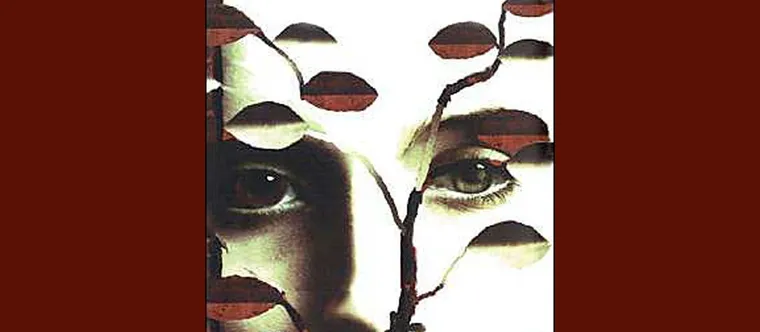Teenagers used to go to the movies to see adults making love. Now adults go to the movies to see teenagers making love.
- Roger Ebert
I'm showing my hand a bit, starting off with that quote, but as I sat down to once again wrestle with my complicated feelings on a genre in which I've written (my only) two novels, I found myself bouncing off the coy, pseudo-academic approach I reached for to describe the growing distance between myself and Young Adult fiction. A lot – nah, let's just say too much - has been said about Young Adult and its perceived problems as a genre, as a marketing category, as a literary category. I could start with a survey of those, but there are only so many variations on "The problem is the writing!" I could read before I tuned out without writing so much as a word on the topic.
Talking about the state of any genre is fraught with pitfalls, because whatever trends you perceive, there are both important exceptions and a different experience of what's actually driving things forward. Whatever I say, there are going to be reasonable arguments that I'm misunderstanding and misstating where things have gone and are going in the Young Adult space.
That's fine. While I agree with many of the critics of Young Adult that there are serious problems with what's going on, where I break is why, and what those problems mean. Where critics go wrong is in identifying the problem as one of shallow content or lower formal qualities. There certainly are a lot of books in the popular end of the genre with precisely these issues, but they're as much symptom as driver. There's a feedback loop between readers, marketers, and writers happening that has driven popular Young Adult so far astray that it barely resembles itself anymore.
The problem isn't any individual novel. The problem is adults.
Ironic, I guess, given that the challenges faced in most great YA stories – and for teenagers themselves – come from adults. Adults not listening, not caring, forcing their own anxieties and demands onto them, and generally treating them as outlets for their own needs. A core problem of life as a teenager is playing out in the production of the very novels supposedly about and for them. Where YA books were historically (and unfairly!) ignored by critics of serious literature, consigned to being Just For Kids, the pendulum has swung all the way into the opposite problem. Popular YA isn't for kids and teens at all anymore. It's a genre for adults to relive their youth, like a dad forcing his son into football to vicariously revel in a world he can never be a part of again.
I took a look at the New York Times bestseller list for hardcover YA novels and the problem was almost comically obvious. The log lines for 7 of the 10 bestsellers read like this:
- "Two young rival journalists find love through a magical connection."
- "Forbidden love is in the air when Paedyn, an Ordinary, and Kai, an Elite, become romantically involved."
- "Roman and Iris will risk their hearts and futures to change the tides of the war."
- "Isla must chose between her two powerful lovers."
- "Niamh is hired to serve as the tailor for a royal wedding and finds herself attracted to the groom."
- "Charlie and Bailey place bets on the love lives of others, while fighting the feelings they have for each other."
- "Eden and Josh decide to give their relationship another chance despite the emotional baggage they both carry."
Every one of these is marketed as the same story: rote romances, often in fantasy settings, often following the enemies-to-lovers arc. I'm not saying any of these are bad books, and would bet that at least a couple are both very good and not lashed to the increasingly dominant tropes of the subgenre-of-a-subgenre we've forced all of YA into. Nor is there anything inherently wrong with this particular collection of tropes. I begrudge neither the individual authors nor individual readers who enjoy playing in this space. That said, does this look representative of the wide range of teenage experiences? Do the majority of these sound like teenage experiences at all?
Popular Young Adult novels, the ones with big marketing campaigns and passionate fanbases behind them, are increasingly the province of adult narrative fetishes, mapped onto young characters to reflect a fantasy of a life not lived. Too much of the genre caters to adult CW fans, who don't seem to understand the specific role those shows play for teens, nor the deep pool of possible stories not presented there. Stories teens will and do go to adult fiction for instead.
To the degree these books are "for young adults" at all, they're a pandering, constrictive view of the coming of age narrative, one where kids face superficially manicured versions of oppression, have emotionally constipated romances with rivals or enemies, and can only be defined by rote hero's journey arcs that all lead to the same place. Bluntly, a genre that once smuggled challenging, difficult stories about growing up under adults noses and into school libraries now treats teens as shallow children, not ready for real stories.
There's nothing wrong with liking romantic fantasy YA, or vibing with the tropes that have become its primary marketing force. Every one of these books could be brilliant and there would still be a problem of adults talking to each other over teenagers, treating their fiction the way they do the teens themselves: as avatars for their own desires. As someone who has written fantasy YA with a central romance, I am not in any way critiquing individual choices by individual writers. Systemic issues are about patterns, expectations, and societal inertia. The issue isn't when one person chooses to write this over that, but the exclusion of those who make other choices.
By inserting themselves into a genre they neither need nor belong in, adult marketers and readers have distorted the overriding trends of the genre to favor one, specific kind of book, and a very particular segment of readers. It's flattened a genre I saw and continue to see as important and meaningful into an alternative for adults who feel embarrassed reading and writing perennially (and misogynistically) stigmatized adult romance novels.
Young Adult is not a lesser literary form. The ways it doesn't seem to hold up to the standards of adult literary fiction is not a bug, but a design feature. What makes a great YA novel important is that it does different things than an adult-oriented novel, and does it in different ways. While adult readers shouldn't be embarrassed to enjoy the genre, it absolutely should not be for them. The beauty of Young Adult fiction is that it can offer a level of empathy to the many variations on the teenage experience that adult fiction is not equipped to do. It can be a place to be seen, to be heard, and to be respected.
Stifling the publishing avenues for that goal on behalf of romance fantasies adult readers and marketers want to see teenagers act out for them is not something we should support.



